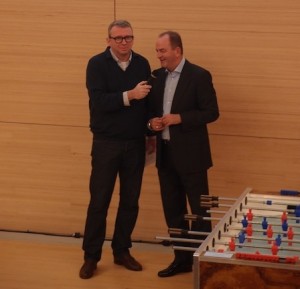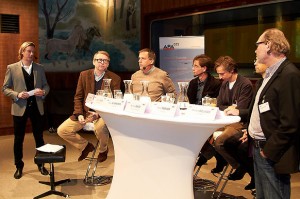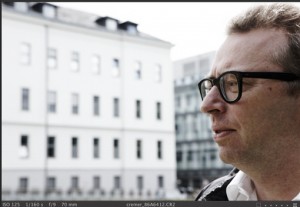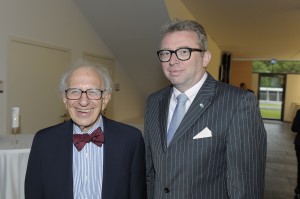![]() Am 19. Juli spricht Helmut Jasbar mit mir in der Sendung „Nachtquartier“ auf Ö1 ausgehend von meinem Text „Mögen Sie junge Menschen“ unter dem Titel „Was im Verborgenen blüht. Ausbildung für Zyniker“ über Schulen und Lehrende. Freitag, 19. Juli 2013, 00:08, live im Radio und sieben Tage zum Nachhören unter http://oe1.orf.at/programm/343452
Am 19. Juli spricht Helmut Jasbar mit mir in der Sendung „Nachtquartier“ auf Ö1 ausgehend von meinem Text „Mögen Sie junge Menschen“ unter dem Titel „Was im Verborgenen blüht. Ausbildung für Zyniker“ über Schulen und Lehrende. Freitag, 19. Juli 2013, 00:08, live im Radio und sieben Tage zum Nachhören unter http://oe1.orf.at/programm/343452
Archive
13|06|23: On failing
You must recognise that failure is 90% emotion, 10% self-fulfilling reality, and the fact that we are haunted by it is neither here nor there.The zen of it is that success and failure are both an illusion, that these illusions will keep you from the desk, they will spoil your talent; they will eat away at your life and your sleep and the way you speak to the people you love.
Anne Enright in „Falling short: seven writers reflect on failure“, The Guardian, June 21, 2013
13|04|17: Migräne: eine Selbsterfahrung
Aus der Kategorie “Sätze, für die es sich zu lesen lohnt”
„Ich bin kein arroganter Depp. Ich lasse mir durchaus Dinge sagen. Die Migräne ist eine Krankheit, die dich nachgerade dazu zwingt, tief in die eigenen Abgründe zu kriechen und zu analysieren, wie das alles so ist mit dir selbst. Das ist nicht immer lustig. Aber es ist eine gute Übung. Das eigene und das anerzogene Wertesystem, vermeintliche Schwächen und Stärken kommen auf den Prüfstand. Immer wieder. Alles wird hinterfragt. Bin ich zu ehrgeizig? Zu hektisch? Verlange ich mir zu viel ab? Zwingt mich der eigene Lebenswandel in die Knie, sodass ich, wie manche behaupten, durch die Migräne ein Ventil benötige, um Druck abzulassen? Bin ich wirklich selber schuld daran?“
Ute Woltron in „Wenn man tot sein will“, Die Presse, 13.4.2013. http://diepresse.com/home/spectrum/zeichenderzeit/1388430/Wenn-man-tot-sein-will?
13|04|07: On Britishness
„The British are supposed to be self-doubting rather than self-righteous – since the dissolution of empire, anyway. It’s one of the things I’m most patriotic about. From our awkwardness and embarrassment has sprung a complexity of literature, comedy and pop music that no other country can touch, for all their sunny weather and expressive street carnivals. You don’t get Fawlty Towers, Morrissey and Martin Amis from a nation that likes itself.“
Victoria Coren in „George Osborne, gawd bless yer“, The Observer, http://www.guardian.co.uk/commentisfree/2013/apr/07/george-osborne-does-mockney-accent
13|04|06: Erinnerungs-Päckchen
Aus der Kategorie „Sätze, für die es sich zu lesen lohnt“
„Ja, daran glaube ich: Erst wenn ich es geschafft haben werde, all diese abgelegten Erinnerungs-Päckchen wieder aufzuschnüren und auszupacken, erst wenn ich mich traue, die scheinbare Verläßlichkeit der Vergangenheit aufzugeben, sie als Chaos anzunehmen, sie als Chaos zu gestalten, sie auszuschmücken, sie zu feiern, erst wenn alle meine Toten wieder lebendig werden, vertraut, aber eben auch viel fremder, eigenständiger, als ich mir das jemals eingestanden habe, erst dann werde ich Entscheidungen treffen können, wird die Zukunft ihr ewiges Versprechen einlösen und ungewiss sein, wird sich die Linie zu einer Fläche weiten.“
Joachim Meyerhoff in “ Wann wird es endlich so, wie es nie war“ (KiWi, 2013)
13|03|30: On objectivity
„(J)ust how far can we use our own cultural and moral values to illuminate a very different situation from our own, particularly when the evidence for that ancient society is so patchy? Is objectivity even possible? The answer is that there can be no right or definite answer. All we can do is ask appropriate questions, evaluate the evidence as carefully as we can in the hope that understanding its context may help towards a solution, and be aware that historical interpretations are, in fact, just that – they are not full answers or complete narratives, but readings of ancient evidence made from particular modern perspectives.“
Hope V. and Huskinson J., „The Roman Family“ in Rome – City of People (Milton Keynes, 2006)
12|11|29: Schneckerl and me
 Yesterday we celebrated the farewell party for IST Austria’s managing director Gerald Murauer. It was, indeed, an evening, as I had promised at the beginning, „as embarrassing and sentimental, as toe-curling and sobby“ as possible. One of the highlights was the surprise appearance of Austria’s soccer legend Herbert „Schneckerl“ Prohaska who I had the pleasure to interview. A man with a fine sense of humour which is probably indispensable if you make your living being a TV pundit commentating Austrian soccer.
Yesterday we celebrated the farewell party for IST Austria’s managing director Gerald Murauer. It was, indeed, an evening, as I had promised at the beginning, „as embarrassing and sentimental, as toe-curling and sobby“ as possible. One of the highlights was the surprise appearance of Austria’s soccer legend Herbert „Schneckerl“ Prohaska who I had the pleasure to interview. A man with a fine sense of humour which is probably indispensable if you make your living being a TV pundit commentating Austrian soccer.
12|11|16: Smarte Diskussion
 Diese Woche (14.11.) diskutierte ich auf Einladung der APA mit Kollegen die Frage „Wie ’smart‘ verkauft sich Wissenschaft?“ Eine Zusammenfassung der zwar lebhaften, aber nicht sonderlich kontroversiellen Diskussion findet sich in der dem Anlass angemessenen APA OTS Aussendung, eine Auswahl an Bildern in einer Galerie unter Moderationen.
Diese Woche (14.11.) diskutierte ich auf Einladung der APA mit Kollegen die Frage „Wie ’smart‘ verkauft sich Wissenschaft?“ Eine Zusammenfassung der zwar lebhaften, aber nicht sonderlich kontroversiellen Diskussion findet sich in der dem Anlass angemessenen APA OTS Aussendung, eine Auswahl an Bildern in einer Galerie unter Moderationen.
12|06|01: Neues Porträt
 Rafaela Pröll hat heute nebenbei ein Foto von mir gemacht, ich habs in die Porträtsammlung unter Moderationen gestellt. Kein „Schönbild“, aber ein schönes Bild. Vielen Dank.
Rafaela Pröll hat heute nebenbei ein Foto von mir gemacht, ich habs in die Porträtsammlung unter Moderationen gestellt. Kein „Schönbild“, aber ein schönes Bild. Vielen Dank.
